7 Signs You're Secretly In Pain
Years spent committed to convincing others of our invulnerability to pain can lead us to believe this falsehood ourselves, which, in turn, propels us toward self-destructive behaviors. Our disconnection from the reality of pain subconsciously drives us to seek ways to avoid confronting it.

Pain typically carries a negative connotation in our society. Many of us go to great lengths to either appear as though we never experience pain or to significantly downplay the amount of pain we endure because we believe that acknowledging our pain or showing it will make us appear weak. However, this illusion comes at a great cost. Years spent committed to convincing others of our invulnerability to pain can lead us to believe this falsehood ourselves, which, in turn, propels us toward self-destructive behaviors. Our disconnection from the reality of pain subconsciously drives us to seek ways to avoid confronting it.
I find the general disinterest in healing both fascinating and disheartening. However, the more I've considered it, the more I've come to understand that any reasonable person who recognizes their damage would take steps to repair it. Therefore, the lack of interest in healing must stem from a lack of conscious awareness of one’s own suffering. Many of us have grown so accustomed to a state of numbness that we are completely oblivious to the depth of feeling that is possible. Since chronic emotional pain is often much less tangible than physical pain, I felt compelled to compile a list of subtle signs that might indicate someone is suffering more than they realize. While some wounds may heal unconsciously and automatically with little effort from our conscious selves, other wounds—particularly deeper, emotional ones—will never heal without our conscious and intentional recognition and engagement. The purpose of the list that follows is to shed light on the pain you may be hiding from yourself.
Here are 7 Signs that You're Secretly in Pain:
1. Your life revolves around pleasure
Pleasure is often mistaken for happiness because happiness invariably feels good but if you really investigate pleasure, you'll find that it never brings lasting happiness because pleasure, by its very nature, is fleeting. One of my favorite sayings regarding pleasure is an old Zen Proverb that goes, "Painted Cakes Do Not Satisfy Hunger" which I interpret to mean that while a fancy cake is food and while eating cake feels good, we can all agree that cake is not nutritious. Cake is lacking in substance - so, while it is pleasurable, and while pleasure feels good, pleasure alone cannot sustain you. Something being pleasurable does not mean that it contributes to your overall well-being.

Since pleasure is fleeting, constantly having it means constantly pursuing it, and to constantly pursue anything requires the sacrifice of other pursuits. Many people harbor dreams, from childhood or as adults, to create, achieve, grow, or build something meaningful in their lives. Achieving these goals often means consciously or subconsciously tempering the pursuit of pleasure. For example, opting out of a party to study for an important exam, or choosing to eat salad instead of pizza if you're aiming to be in better shape, are instances of such sacrifice. Though these sacrifices may not be easy, balanced individuals recognize the value in forgoing the pursuit of pleasure to achieve something of greater substance. Thus, if one finds it difficult or impossible to pursue anything beyond immediate gratification, it's a clear sign of imbalance. In fact, it suggests there is something happening within themselves that is so undesirable that the only distraction from this inner discomfort is a constant stream of pleasure.
There is nothing inherently wrong with wanting to feel good. The danger arises when 'good' is the only thing that you want to feel. Because when 'good' is the only thing you want to feel, then you've made yourself susceptible to becoming an addict. When 'good' is the only thing you want to feel, you lose agency over your life and the ability to sacrifice something fleeting like pleasure for things that will bring you lasting satisfaction.
2. You feel like a victim of your circumstances
We are all victims of something. Each of us has encountered situations outside of our control that have caused us physical, mental, or emotional harm. However, being a literal victim does not necessitate embracing victimhood. Accepting victimhood might seem natural when you've been victimized, as it absolves you of feeling responsible for your current state. Yet, this perceived benefit comes at the cost of relinquishing any power you possess to change your circumstances and create the life you desire.
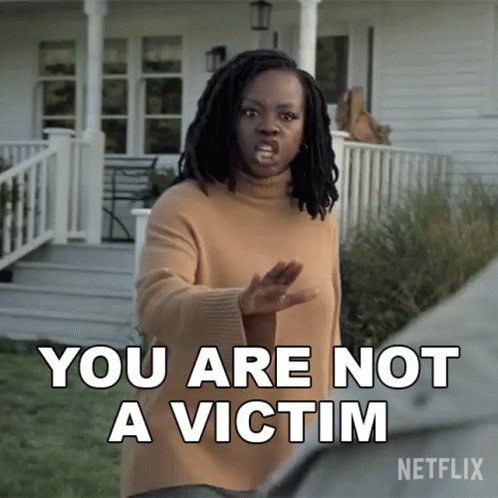
Many of us prefer the devil we know to the one we don't, which explains why, despite the pain of feeling victimized, the idea of confronting the pain that led to our victimization—to heal from it—seems more daunting and painful than simply remaining a victim. For some, the identity of a victim becomes integral to their sense of self, and shedding this identity feels like losing a part of who they are. This loss concerns not just their self-perception but also how they are recognized and related to by others. Rebuilding one's identity is a complex, uncertain process, making the familiar pain of victimhood seem preferable.
For much of my childhood and early adulthood, I felt victimized by the absence of my father. Although I pretended not to care about him or his actions, deep down, I used our estranged relationship as a crutch whenever faced with situations that exposed my emotional immaturity. The absence of my father was painful, but admitting that I wanted him in my life would have been even more painful. Recognizing this desire would have meant taking responsibility for attempting to improve our relationship. Fortunately, the heartbreak of my mother's cancer diagnosis cracked open my heart, revealing the depth of pain I had been concealing. This revelation ultimately propelled me to take steps toward healing our relationship.
3. You hate being alone
Human beings are biologically social creatures, so it makes a ton of sense why many people fear being alone. For our ancestors, solitude often equated to death, so I can understand the deep-seated fear of being alone that many people harbor. However, spending time alone is crucial for getting to know oneself on a profound level. Throughout most of our lives, our self-knowledge is shaped by what others tell us about ourselves. While external validation and perspectives are valuable, the truth is that no one can know you better than you know yourself, because only you have full access to your inner world.
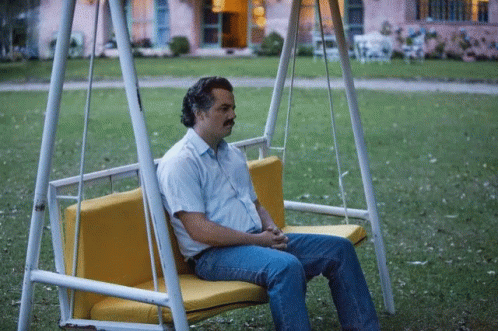
It's not until we spend significant time alone that we realize how influenced we are by others. Depending on others for validation is a slippery slope, as people's opinions are inherently fickle—I've been called both the most beautiful and the most ugly names by the same person. I've encountered people who tried to convince me of attributes about myself that I knew were untrue, often reflecting more about their self-perceptions than my reality. However, I would never have gained the knowledge or the confidence to reject their views if I hadn't spent ample time in solitude, getting to know myself.
The aversion to being alone is often an aversion to self-reflection because when there's no one around to distract you, you're forced to confront yourself. This is why meditation is challenging for many; being alone with your thoughts, even for just five minutes, can unveil internal pain in ways few other practices can. Many of us use social interactions as a crutch to avoid facing the uncomfortable emotions that solitude forces us to confront. While enjoying the company of others is natural, a hatred of being alone likely points to deeper issues within that merit investigation.
4. Seeing others happy makes you unhappy
Jealousy is an uncomfortable emotion that persists largely because we refuse to acknowledge its true origins. While many believe jealousy simply stems from desiring what someone else possesses, it's crucial to understand the underlying reasons for these desires. For instance, if I were in a relationship that left me completely fulfilled, the sight of other happy couples would not spark jealousy within me. However, if I find myself unintentionally single or in a relationship with someone I secretly resent, witnessing other couples who appear joyous can evoke jealousy, as it highlights the dissatisfaction and pain in my own situation, in contrast to their seemingly pain-free lives.
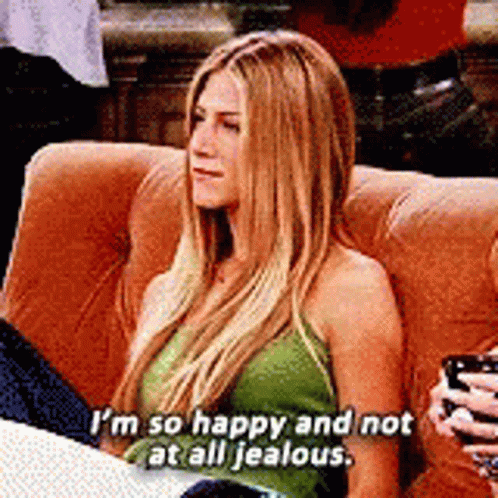
I hold the belief that genuinely happy individuals do not intentionally cause harm to others, nor do they experience jealousy, because in order to be happy, you have to be grateful for what you have. Yet, it can be exceedingly difficult, if not impossible, for most people to feel grateful when they are engulfed in pain. Therefore, for those of us grappling with our own suffering, seeing others who appear to be content can naturally provoke feelings of hatred, envy, resentment, or jealousy.
5. You struggle to maintain eye contact
They say 'the eyes are the windows to the soul', or at the very least, they serve as the primary medium through which our inner world interfaces with the outer world. If there is any point on the body that could grant someone access to the most vulnerable parts of ourselves, it would be through the eyes. For this reason, maintaining eye contact can be very difficult for many of us. We subconsciously fear that if someone looks into our eyes for long enough, they will uncover all the damage, pain, and insecurity we are concealing deep inside.

From personal experience, I can attest to this. In the past, whenever someone would gaze deeply into my eyes, I felt as though they were searching for something. I felt exposed and vulnerable, as if my eyes could not mask the lies my mouth often uttered. My avoidance of eye contact wasn't just about concealing unseen wounds; it stemmed from a deep-seated fear of being truly seen. I believed that if anyone truly saw me, they would be repulsed by what they found. We avoid eye contact because we fear that our true selves might be revealed and ultimately rejected. This fear can originate from the pain of others around us refusing to see us as we truly are, or from our own refusal to see ourselves as we are.
6. You don't really feel empathy for others
I feel that empathy is a natural trait for human beings, a notion supported by extensive research. However, I've personally encountered, and met others who have difficulty feeling empathy for others. The reason, to me, is clear: we struggle to feel empathy for ourselves. Many of us have been conditioned to believe that we are unworthy of empathy, or that the pain and trauma we've experienced in our lives are invalid, or that no one cares about our suffering. This belief system makes it exceedingly difficult to empathize with the pain of others.
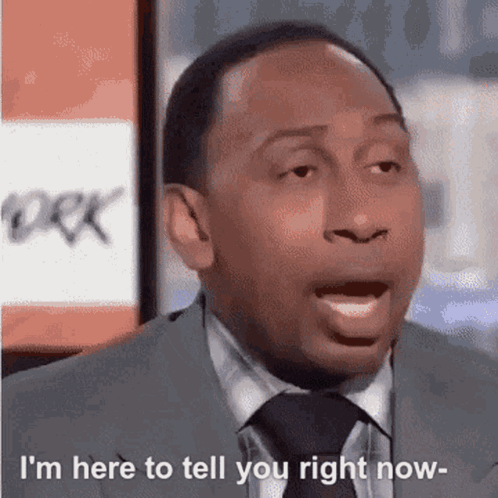
We can only connect with others to the extent that we've connected with ourselves. If we haven't delved into our own suffering and learned to offer ourselves comfort, we will find it challenging to extend that comfort to someone else. While I acknowledge that certain mental illnesses can affect one's natural capacity for empathy, if you find empathy to be inaccessible or uncomfortable and you haven't been diagnosed with such a condition, it might be worthwhile to explore why. You may discover that your difficulty in caring about others' pain stems from a belief that no one cares about your own pain.
7. You feel no connection to a higher power
When atheists are asked why they don't believe in God, they often gesture broadly at the shit show that is unfolding on Earth at any given moment. And I truly get it - I truly understand the challenge of believing in a loving God amidst all the suffering that occurs on Earth. However, what I think many atheists fail to realize is that their focus on the world's pain is often a means to bypass the pain they feel within themselves. Similar to my experience with my father abandoning me to suffer alone, I think many atheists feel abandoned by 'whatever gods may be' to suffer alone and because of this, they'd rather deny the possibility that a higher power could exists because it hurts less to believe God doesn't exist than it does to acknowledge a Creator that you feel has abandoned you.

In addition, many of us with a religious upbringing were taught to feel guilt or shame for experiencing feelings that are entirely natural. It's no wonder that years of indoctrination—being told that truths and feelings that internally felt very right to us were wrong—is painful. And being forced to live with that pain would naturally cause resentment towards whoever made you feel that pain. Living with that pain can naturally cause resentment towards those who made us feel it. This explains why many of us who were raised in the church left and never looked back as soon as we had the freedom to make our own choices. The church, while attempting to connect us to a higher power, disconnected us from ourselves which ironically is the connection to the higher power. The disconnection some feel towards a higher power is, in truth, a reflection of the disconnection they feel from their deeper selves and the disconnection from both is rooted in the pain of being made to feel guilty or ashamed of showing up as you truly are.
Growth Challenge
Sitting with Pain
Objective: Sit in silent meditation for at least 15 minutes and then reflect on all the different types of pains you experienced during this meditation and your reaction to them. This includes physical, mental, emotional, or spiritual pain.
Steps:
- Find a quiet space where you will be unbothered for at least 15 minutes
- Find a comfortable seat, either in a chair, on a cushion, or your yoga mat, etc.
- Put your phone on do not disturb and set a timer for 15 minutes
- Close your eyes and do your best to follow your breath - thoughts will come and go but do your best not to chase them by anchoring your awareness in your breath.
- You will fail to stay with your breath many times, and that is completely okay. When you catch yourself lost in a thought or sensation, gently return your awareness back to your breath
- After the meditation is complete, reflect on the various pains that arose during the meditation
- Be kind to yourself, sitting in meditation is difficult, so don't judge yourself if you didn't make it the entire 15 minutes but also be honest with yourself as to why you didn't make it if you didn't.
Further Study
For this week, instead of sharing a video that expounds on the idea of hidden pain I wanted to share a video that artistically demonstrates that the pain one feels is not always obvious. I invite you to watch this video and reflect on how you or those close to you have often hidden pain and what the cost of hiding that pain was.
Direct Link: https://www.youtube.com/watch?v=tX8TgVR33KM&ab_channel=NorwichCityFootballClub
What's Going On With Me?
Every now and then I get the overwhelming desire to make some sort of drastic change. This past week that desire manifested in me trading in my beard for a porno 'stache. And while I definitely look 100% more like a creep, it feels good to have a different look - to feel my bare face and to not feel so attached to looking a certain way. My beard has definitely become a safety blanket of sorts for me ever since I went bald and idk, I don't want to feel like I have to depend on anything external to my own spirit as a crutch for feeling like myself. My goal is to live as freely as possible and to me that means not being attached to any one external image of myself because I know in time how I look is going to constantly change.

I Complete Myself
When I first launched the newsletter, I played around with the idea of creating merch for each month that was aligned with the theme of that month. February's theme was Self-Compassion and while I am a bit late, I think it's okay since the design I came up with for self-compassion is centered around a woman and March is women's history month so I'm kinda killing two birds with one stone 😬
The goal of this design was to illustrate the peace that is achieved through self-love. It's not meant to imply that intimate relationships with others aren't valuable or necessary but rather to show that the most important relationship you can ever have is the relationship you have with yourself. And that in order to have a successful relationship with anyone else, you have to both show up as two wholes & not two halves. The design in available in a standard unisex tee, a women's crop tee, and on a mug. I chose these items because I felt like they'd appeal to the most amount of people but if you'd like any other types of merch, let me know! I'm definitely open to expanding the selection.



You can get your own at the link below:
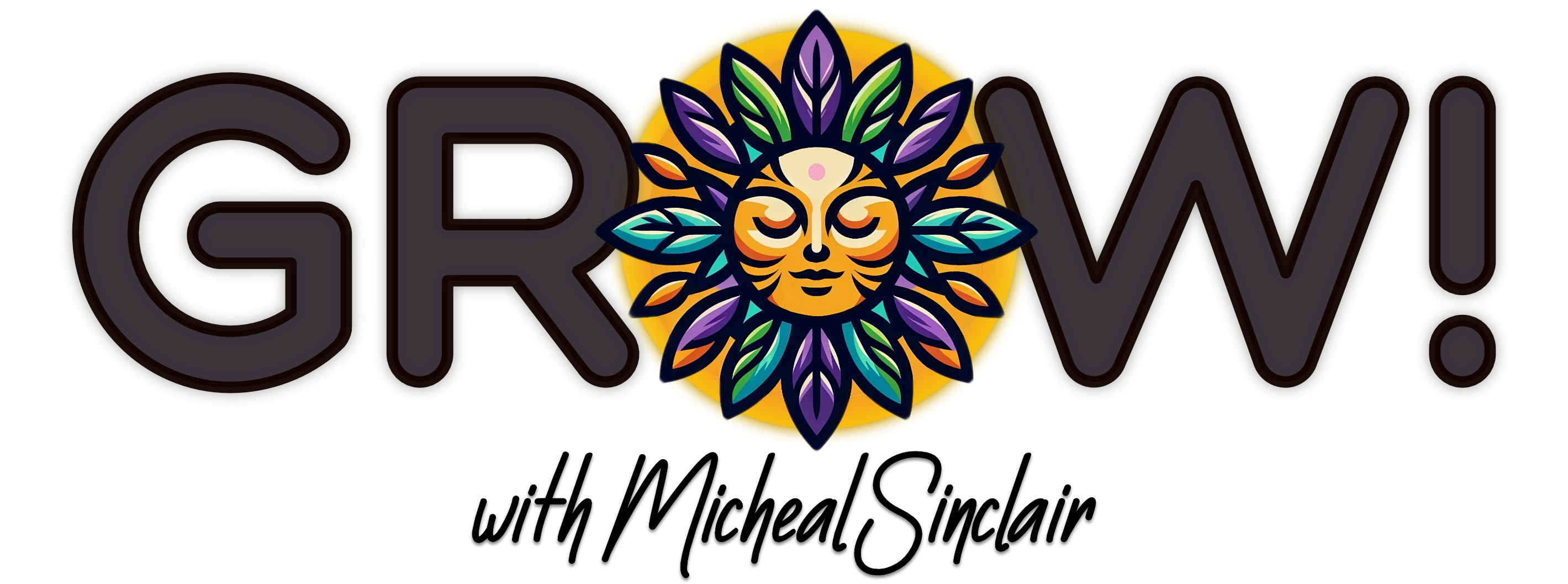
It's hard to believe that it's already March but I'm so looking forward to consistently warmer weather. Idk if it's the weather changing, the days getting longer, or dropping the weight of my beard (temporarily lol) but I've been feeling a lot lighter and brighter recently and I hope that you have been too.
As always, I'd love to hear your thoughts on this piece or in general in the comments but if not, I'll share my thoughts with you again next week! 💜

